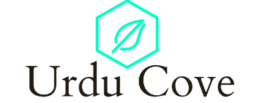Read this in:
 اردو (Urdu)
اردو (Urdu)
This time in our life is full of contemplation and asking ourselves some serious questions. I have been able to read more books than any other time in my life so far, not counting the medical school time. One particular notion that speaks to me is that how much do we understand the idea of being useful? How much of our existence are we aware of? How much of our community are we familiar with?
This somewhat abstract idea has been on my mind since I read the book How to do nothing by Jenny Odell. (affiliate link) She described so many scenarios where what we think is usefulness and productivity might be something else entirely.
It is your perspective that can make you shift your thinking or completely change it altogether.
The useless tree
There were some insightful references from writings by Zhuang Zhou, a fourth-century Chinese philosopher. For instance, she mentioned the story of a carpenter who looked at a very strange-looking old tree and decided that its timber would be useless for him. That tree appears in his dream and asks, “are you comparing me with those useful trees?” referencing the fruit and other trees that are destroyed regularly. “If I had been of some use, would I ever have grown this large?”
This story and many other references in this book have made me realize that the way we shape our identity through the filter of usefulness changes so much over time. It is foolish to think otherwise.
The book has several other great insights related to how we perceive our world and what civilization has sought to change in the world considering it useless. Yet, the method of determination of usefulness is seldom given much thought.
I hope my usefulness grows over time, but the question remains, according to who’s definition?
Definition of usefulness
Becoming useful entails changing in ways that make you more in line with what you believe in. It requires us to have conversations to grow together and find our usefulness from different perspectives.
But there are things worth changing for and some that are worth resisting.
The attention economy is forcing us into a world where the conversation in person becomes extinct and where we are communicating through the superficial filters of our online presence. How do you find out if you are being useful?
The countless distractions in our life from social media and other anxiety-provoking news have made it increasingly difficult for us to stay focused on what we call usefulness.
So in my opinion, we need to resist blending together into a non-discernable entity that treads so lightly lest someone gets offended. The plethora of online posts promoting diversity in its more blended form, where everyone agrees with everyone and whoever does not fit the persona is pushed to the side.
Reshaping our attention to improve our usefulness
We have to pay attention to our community, our friends who are trying to figure out their own usefulness. A conversation is a great place to start, so is the environment that we rarely pay attention to despite experiencing it every day.
The trees, birds, bugs, and other creatures share our world yet we do not know them or know their names. I intend to learn more about them just so I am a useful member of my community in this world.
I discovered through this book an app that helps you find out the names of birds (if they sit still long enough) and plants (if you can focus on them). Recently we went to a beautiful state park where I loved discovering the names of all the familiar-looking bushes.
Hello new friends
It seemed like I was getting introduced to my friends in the community. Before this, they were mere acquaintances or complete strangers.

You can see for yourself if you like. The app is called iNaturalist (link to android and apple)
It can be a great activity to do with the kids so they can learn the names of their community members. Maybe they can have better conversations.
I also took a picture of a cove (from Urdu Cove), just to explain it better for some folks who may now know what it means. I could not have picked a better example.

So my question to you is, are you who you say you are? Are you being useful?
Was this post useful?
Read this in:
 اردو (Urdu)
اردو (Urdu)


Very interesting thought. You gave me so much to think about. And yes I do judge my usefulness a lot and I should stop that.
thank you for reading! I think we all ask ourselves this at different times, but we often do not take the time that needs to be spent figuring it out. we can help each other out by asking ourselves and each other, maybe some of us have better answers to this question than we think we know.
Thought provoking. Interesting how books open are minds to new perspectives and questions. Perhaps a blog post listing any good books you’ve read and would recommend to others?
thank you for stopping by! I am actually starting another series on book review in Urdu on the podcast… it has been a popular concept and I think Urdu mein review karnay see aur bhi log seekhain gay… our first episode will be published inshAllah on March 2… stay tuned!